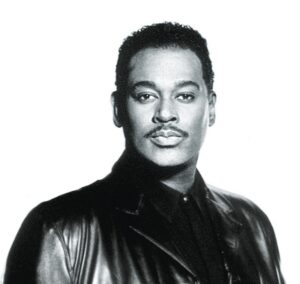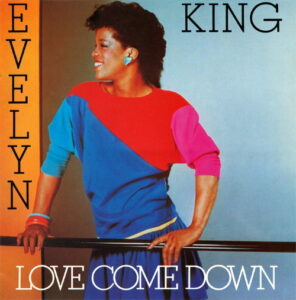Kirk Franklin has always been up front about his struggles. For example, the gospel singer talked about his addiction to pornography and referenced it in the song "Let It Go," which was on the 2005 album Hero. Franklin’s willingness to admit his struggles with his demons, his understanding of popular culture and respect for secular musical styles like hip-hop, R&B and pop have led some to criticize him for being too worldly. However, Jesus is always the main topic of Franklin’s music even when he is drawing inspiration from secular artists such as Tears For Fears, Patrice Rushen, Earth, Wind & Fire, or, on "Declaration, the opening song on Franklin’s new The Fight of My Life, Kenny Loggins.
Besides, Franklin reminds listeners that Christian living isn’t always a walk in the park. That’s something that can get lost amid all of the praise and worship songs that are the rage now. As inspirational as praise and worship songs can be, those tunes focus on the mountain top. The appeal that artists such as Franklin and J Moss have – especially among the young and those who don’t go to church – stems from the fact that both understand people spend a lot of time in the valley. Franklin’s popularity among young church attendees and the those who don’t go to church is an outgrowth of the artist’s ability to speak their language both musically and lyrically.
That strength is amply displayed throughout The Fight of My Life. The truth is that few artists, regardless of genre, address the topics that people on the street are talking about as consistently, passionately and realistically as Franklin. And songs like "Little Boy," " A Whole Nation" and "I Like Me," capture the zeitgeist of the times. On "Little Boy," Franklin engages in a conversation with a teenage boy who dies after getting caught up in the street game, a teenage girl trying to grow up to soon and a married couple so engrossed in their careers that they neglect their children. Franklin shows his ability to merge new school beats with the old school soulfulness by allowing gospel musical legend Rance Allen to sing the hook.
Much has been said about the devastating impact that the large number of missing in action fathers is having on American society in general and the black community in particular. This is a topic that Franklin – who was not raised by his father – has touched on before. He revisits the topic on the song "A Whole Nation." Franklin shares the lead vocals with 11-year old Donovan Owens. And while Franklin grew up fatherless and knows intimately the pain, confusion and anger that accompanies being abandoned by a parent, he also understands those emotions will hit listeners like a freight train when Donovan wraps his young but powerful vocals around lyrics like "When you look out of the window, tell me what do you see/If it’s a world without a father then you’re looking at me/It takes a whole nation to help me raise this generation/My respect to the mothers holding it down/but it sho’ would be nice to have my daddy around."
All of these issues feed into a person’s self-image. It sometimes seems that Americans don’t like themselves very much. That’s one reason why the makeover industry is doing so well. At 37, Franklin grew up in the video age when the constant message is there is a standard of attractiveness, and Franklin knows that a lot of people feel that they do not meet that standard. He’s seen the devastating affect that message has had on the children of this generation, and that’s why a lot of his songs address the self-image and self-love. The Fight of My Life includes several such songs that address the topic with "I Like Me" being the one that stands out, in part because it displays Franklin’s ability to use the techniques of modern day popular music making to make a strong statement of belief that doesn’t sound preachy.
First of all, Franklin understands that he has about 10 seconds to grab the listeners’ attention. The engine he uses to grab their attention is a syncopated hip-hop beat that makes a seamless evolution into an easy to remember hook: "I like me/Yo, you like me?/Cause I like me/Do you like me?/’Cause he likes me." The "he" that Franklin is referring to is Jesus. Popular culture invests a lot of time (and money) convincing people that they don’t measure up in the hopes that the American consumer will spend a lot of money trying to become thin enough, sexy enough, cool enough or rich enough. And while it might be saying too much to contend that Franklin believes it’s a waste of time to attack the ills of materialism and shallowness that pervade our culture, it’s clear he believes we must first confront and defeat our own inner demons. That’s why Franklin titled the album The Fight of My Life.
The Fight of My Life is a typical Kirk Franklin work – a lyrically strong, thought provoking work. Although Frankin is a youth orientated performer, The Fight of My Life includes songs that appeal gospel music fans of all ages, and highlights the artist’s greatest strength – his unwillingness to allow listeners to get comfortable musically or from the standpoint of the topics addressed.
by Howard Dukes










